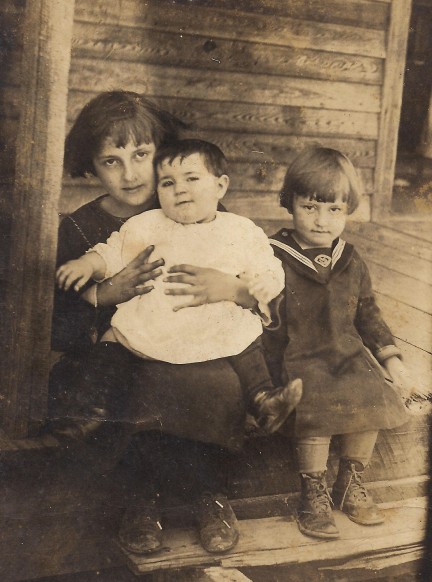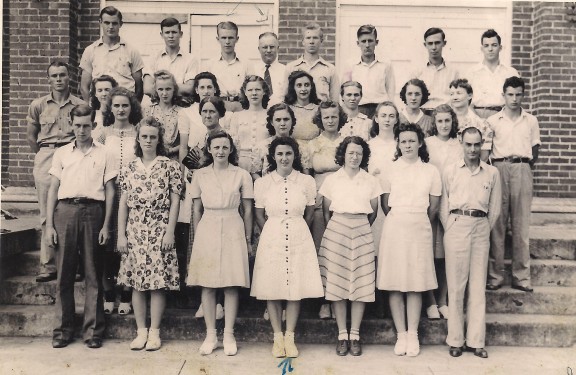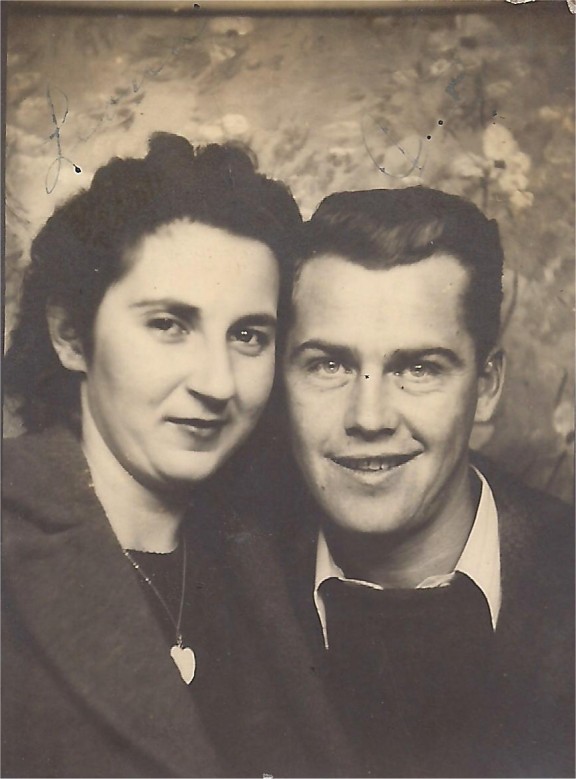Something called a wireless reading device is becoming quite popular nowadays. It’s described as being as thin as most magazines, weighing a little over 10 ounces, and is lighter than a typical paperback. A person who uses a wireless reading device can get books delivered directly to that instrument in less than 60 seconds, can choose from over 540,000 books, plus U.S. and international newspapers and magazines. Could this be the beginning of the end of hardback books as we know them today? I really hope not, and I’m sure there are others who feel the same. I recently learned of a McDonald family who enjoyed reading so much that many times after not having anything new to read, members of this family got out a cookbook and read from it. But the cookbook they read from was no ordinary cookbook. It’s about 3 inches thick and is now over 100 years old. Despite the fact that it’s that old, it’s still in fairly good condition with some wonderful pictures included depicting scenes from that time period. The title on the front of the book is "Whitehouse Cookbook."
The cookbook belonged to the family of John Allen McDonald and wife Myrtle McDonald. One of the daughters of Mr. and Mrs. McDonald, Leona McDonald Averitt, has had the cookbook for many years now. I’ve spent a lot of time visiting in the Averitt home when Peggy, Leona and J.B.’s daughter, and I were growing up, but I knew very little about Leona’s childhood. Here’s a look back at her life.

The McDonald home was located in the Ivyton community of Overton County. There were five children born to John Allen McDonald and wife Myrtle McDonald. (Myrtle’s maiden name was also McDonald.) The children’s names were Clara, Charlie, Lou Ann, Louise, and Leona. A one-room school called Ivy Point was the place the children attended grade school. They walked from their home to school, and later, while attending high school at Alpine, many times the McDonald children caught a ride on the mail truck, or even with someone hauling cattle who happened to be passing by. Charlie sometimes rode a horse to school. Later, truck-type school buses picked students up and took them to school. Some of the teachers Leona remembers having at Ivy Point were Grace McDonald, Larry Copeland, and Hass Huddleston. During school months, dinner was always brought from home. Sometimes it would be sausage and biscuits, or ham and biscuits that were left overs from breakfast. Other times, the McDonald children brought milk and cornbread in a pint jar. One of their teachers, Hass Huddleston, thought this looked so good, he had his wife fix some milk and bread in a pint jar for his lunch. Some of the games played during school days at Ivy Point included pitching horseshoes and playing "The Fox and The Hound."
Even though playing near the river was something the McDonald children enjoyed doing in the summer months, most of them never learned to swim. Something all the McDonald girls did learn to do quite well was how to sew. Their mother gave them careful instructions, and later on, Clara developed sewing skills so well, the garments she turned out looked tailor made. She was careful to cut out her patterns first from old sheets prior to cutting the actual fabric to be used to make the dresses or other garments. This way, she made sure everything fit just perfectly which helped her to avoid making a mistake that might ruin a piece of fabric. Material would be ordered from Sears and Roebuck or Montgomery Ward catalogues and was delivered by the mailman.
One of John Allen McDonald’s brothers, Hayes McDonald, died at an early age and left behind six children and a wife. Porter McDonald, John Allen and Hayes McDonald’s father, helped raise the children. All three McDonald farms joined each other and their homes were all in sight of each other. A daughter of Hayes McDonald whose name was Treva (who later became Treva Moore Gillentine) was close in age to Leona. The two became like sisters as they were growing up. Treva was a grade ahead of Leona and would often loan Leona books that she brought home from school. Leona’s mother helped her study from the borrowed books, and because of her interest in reading and in learning, Leona advanced a grade in school one year.
Miller’s Chapel, which was a Presbyterian church originally, was the place the McDonald family attended church. Although there was no building at the time the McDonald children first began attending, Sunday School classes were held out in the woods. One of the Sunday School teachers told all the children to bring a rock each Sunday, and eventually, they would build a building, and sure enough, that’s exactly what happened. Leona recalled how she and her sisters were baptized in a nearby creek. They each wore their best dresses and the preacher that baptized them had on a suit and tie.
The Christmas holidays didn’t include gifts for the McDonald children with the exception of one year when Treva got a rubber ball. Leona recalled that particular Christmas she and Treva spent the day throwing that rubber ball back and forth over the house. Most every Christmas, peppermint candy or a piece of fruit would be placed in their stockings that had been hung on the back of a chair. Decorating with Christmas trees was not a part of their holiday season.
During the days of the Great Depression, it would not be uncommon to have people who were traveling by the McDonald farm on foot to stop by and ask for something to eat. Leona’s parents would often accommodate these travelers by allowing them to sleep in the loft of the barn after providing them with a hearty meal. But not everyone who spent a night turned out to be honest people. On several occasions, hams, butter, and even the blankets folks had been loaned to sleep under were taken. On one occasion, men involved in the strikes at nearby coal mines had come by asking for a meal. These men also added a special request for buttermilk with that meal, and after being allowed to spend the night, they expressed their thanks by destroying milk buckets kept in the spring house before they slipped away.
Restoring antique furniture has been something the McDonald sisters enjoyed doing. One of the pieces of antique furniture Leona still has is an old sugar chest that has an interesting history. It belonged to her mother, and during the Civil War, soldiers came by looking for money or other valuables to take. The sugar chest had a lock on it, but this didn’t stop the soldiers. They broke the top of the chest which proved to be unnecessary since there was no money hidden there. Even though repairs were made to the chest, evidence of what the soldiers did can still be seen today.
After graduating from Alpine Institute, Leona went on the get a degree from Cordell Hull Junior College in Livingston. Not much has ever been written about that particular school, but here is some information I obtained. Founding members who signed the charter of incorporation for Cordell Hull Junior College were: A.F. Officer; Mrs. A.B. Qualls; Dr. W.M. Brown; Sam Coward; Dr. C.H. Dowell; Artie Hodges; J. H. Myers; H. H. Patterson; Cato Taylor; Benton Young, and J. C. Taylor. The charter was signed on June 21, 1941. The charter says that "the purpose of this institution is to provide educational opportunities for young people, primarily for those young people of the Cumberland Mountain area who, because of limited means, are unable to attend any other institution of learning. Also, it is to serve as a living monument to Tennessee’s most distinguished citizen, Cordell Hull, who is a native of the area that the school is designed to serve. This corporation is located at Livingston, Overton County, Tennessee."
After graduating from Cordell Hull Junior College, Leona finished out a year of teaching at the grade school in Joppa for a teacher who wasn’t able to complete the school year. Teaching also included getting there early enough to get a fire going in the wood stove. Leona walked from her family home in Ivyton to the school at Joppa. Graveled roads were unheard of then, and were often just muddy ruts during the winter months. She still has the knee high boots she wore in the winter while she was teaching, and described them as sometimes being completely covered in mud by the time she got to school.

1. Unknown
2. Charlene Conatser
3. Unknown
4. Leona McDonald Averitt
5. Unknown
6. Unknown
7. Hugh Copeland
Second row: (left to right)
1. Unknown
2. Grace Mitchell
3. Woodley Deck
4. _________ White
5. Unknown
Third row: (left to right)
1. Unknown
2. Unknown
3. ___________ Garrett
4. Willie Ruth Needham
5. Evelyn Bilbrey Stonecipher
6. Margaret McCormick Hutchinson
7. Unknown
8. Unknown
9. Mrs. Pearl Patterson
10. Unknown
Fourth row: (left to right)
1. Unknown
2. Al G. Ramsey
3. Addison Watkins
4. Principal
5. Henry Taylor
6. Unknown
7. Unknown
8. Kenneth Stephens
When Leona and her sisters got old enough to go places without being accompanied by one of their parents, a rule they were required to follow was that a sister had to go along, even if one of them was on an outing with a young man. And that’s how Leona met the person who would become her life companion, a fellow named J. B. Averitt . The first time she saw J.B., he had asked her sister, Louise, to go out with him and Leona had to go along. It wasn’t long after that date that J.B. wrote a letter to Leona asking her for a date. When Leona was 18, J.B. taught her how to drive, and she often drove his car to her house in Ivyton, but came back in town in time to pick J.B. up after work so they could go out on a date. He was employed by Dillis Benson who owned a service station on East Main, and later that business was sold to Upchurch and Dulworth where J.B. continued to work. Some years later, J.B. and Arnold Moore operated a Mobile service station on East Main. J.B. eventually became the sole proprietor of that business and operated it until he retired.

When Leona was 20 years old and J.B. was 26, they married. For a while, they lived with J.B.’s parents, John Kelly (Jack) and Louellen (Clark) Averitt, in a large brick home on East Main Street that once stood in the area of what is now Save-A-Lot grocery store. That house had a wonderful sun room that was unusual for this area. J.B.’s father, Jack Averitt, began the business that continues to operate today under the name Averitt Express. During the early years of their marriage, J.B. served in the Army/Air Force, and was stationed overseas. Their daughter, Peggy, was born prior to J.B.’s discharge from service. Because of the World War II, everything was rationed and many times, staple items were hard to come by. Leona recalls waiting until after dark to go to a home where lard was being sold. The person who did the selling could easily have gone to jail since this type of action was considered very illegal. Nylon stockings were also something quite rare during the rationing days of World War II. When word reached Leona that the fellow who ran the general store at Taylors Crossroads had gotten in a shipment of stockings, she and a friend drove out there just to buy a pair. It was also during World War II that Leona’s brother Charlie died while serving overseas. He was buried in France.
The first home Leona and J.B. had was a house on Taylor Street here in Livingston. There was no indoor bathroom and water for that house came from a spicket in the corner of the yard. Eventually, water was run inside the house. When Peggy was around five years old, the family moved to a house on Woodland Street, and later bought the home Leona continues to live in today. In 1957, son, Ricky, was added to their family. J.B. passed away in 2002.
For many years, Leona was very active in pottery classes here and helped get a group established who met at the fairgrounds to make pottery. She has also been a long-time and very active member of First Christian church here in Livingston, as was J.B.
Even though modern technology offers these new gadgets that makes reading a book a completely new experience, I’m still just as happy to be able to read in the newspaper about the lifestyle of a family who loved reading enough to get out a cookbook just to have something to read.